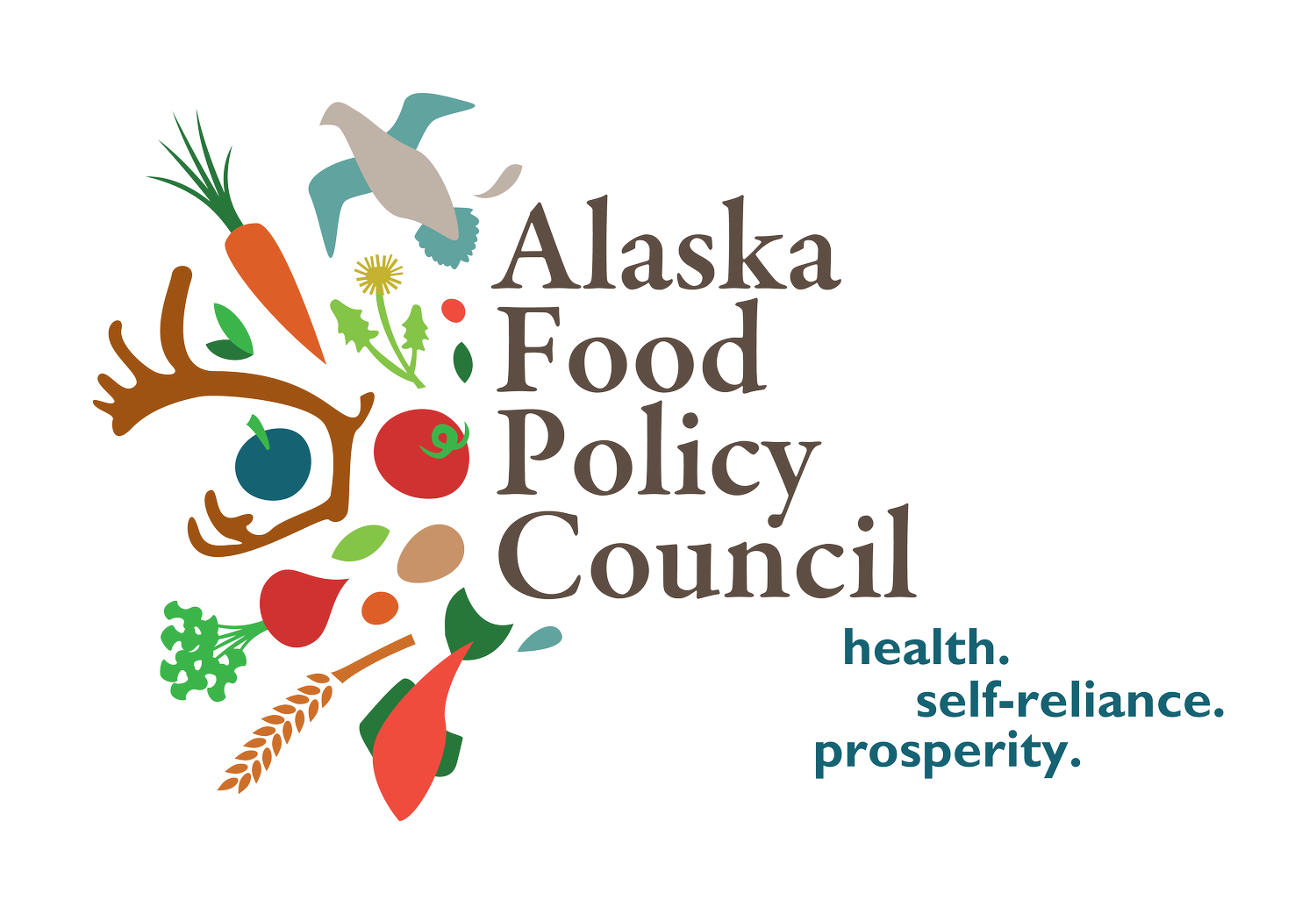At each conference, the Alaska Food Policy Council recognized individuals and organizations with the “Alaska Food Hero Award.” Selection is based on the work they have been involved with over the past 18 months. Awardees demonstrate a substantial impact on Alaska’s food system, transform an aspect of their community’s food system, and make a difference for Alaska’s prosperity, health, and self-reliance.
This year’s winners are Cyrus Harris and the Maniilaq Association Traditional Foods Team (Kotzebue), the Wrigley family — Bryce, Jan, Milo, and Leah — of Alaska Flour Company (Delta Junction), and the Aleutian and Pribilof Islands Association (APIA) Traditional Foods and Wellness Programs. They were among a number of people or organizations nominated for the award by community members around the state. The three winners receive a glass plaque and a homemade quilt featuring the Alaska Food Policy Council logo made by AFPC governing board member Mel Sikes of Fairbanks.
Hosted by the Alaska Food Policy Council (AFPC), this sixth semi-annual Alaska Food Festival and Conference event previously took place in Anchorage in 2014 and 2016, in Fairbanks in 2017 and Homer in 2019. In 2020 and again in 2022, the conference was scheduled for Anchorage before going virtual due to the pandemic. In addition to the Alaska Food Policy Council, the 2022 event was co-sponsored by the Intertribal Agriculture Council and the University of Alaska Anchorage (UAA) Dietetics and Nutrition Program.
Cyrus Harris and the Maniilaq Association Traditional Foods
The team has worked together to provide niqipiaq to Elders at the Utuqqanaat Inaat long-term care facility in Kotzebue since 2015, through a state-permitted traditional food processing and cold storage facility known as the Siġḷuaq. In 2021, the team made years of hard work from countless helping hands a reality by achieving State of Alaska approval for serving seal oil. They used experimentation and a pasteurization process to reduce the risk of botulism, a rare but deadly foodborne illness linked with traditionally made seal oil. Now, the Elders at the Utuqqanaat Inaat are able to enjoy on-demand the seal oil they grew up eating daily. The team hopes to expand the list of safe and nutritious niqipiaq foods offered to the Elders and share lessons learned with other tribal groups across the continent interested in serving traditional foods in long-term care settings.
The Traditional Foods and Wellness Programs at APIA
The Traditional Foods and Wellness Programs at Aleutian Pribilof Islands Association work in tandem to carry out food-related initiatives and are dedicated to supporting the health and wellness of the Unangax people. Current projects are focused on working with Elders and community leaders to preserve traditional food knowledge and address food access and food security throughout the region.
One exceptional team member working with these programs is Sally Swetzof, from Atka, Alaska. Sally grew up living a subsistence lifestyle and has been able to pass this cultural knowledge down, not only to her children and grandchildren, but also to her greater Unangax community. She is a respected Elder and mentor on a variety of traditional practices, including traditional Unangax food harvesting, preparation, and preservation. She is also a fluent speaker in the traditional Atkan dialect of the Unangam Tunuu language and has been a leader in revitalizing the language. Sally has been a tremendous resource and an essential team member in many projects at APIA, including most recently being involved in the Qaqamiigux: Traditional Foods Film Series. Sally is a central figure in many of the films, including the topics of: chocolate lily, reindeer, eider duck, and bidarki. Her involvement in the project has been key to the success of the films in light of her skills as an educator, traditional knowledge bearer, and fluent Unangam Tunuu speaker.
The Wrigley’s, Alaska Flour Company
Settling in Delta Junction, Alaska back in 1983, the Wrigley's imagined building a farm that would increase Alaska’s food security, create markets for fellow farmers, provide healthy, locally grown food options, and offer their children the opportunity to continue the operation into the future. They knew Alaska's unique conditions - a short growing season and long, dark winters - would require innovative farming techniques and never-say-quit determination. They use sustainable farming practices on their 1,700-acre farm, on which they raised five children. In 2011, their hard work, perseverance, and passion for nutritious, locally grown products paid off when they founded the Alaska Flour Company, the only commercial flour mill in Alaska. (The next nearest mill is more than 1,500 miles away.)







